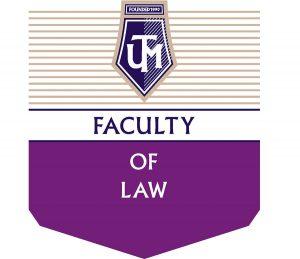CIRCLE OF HISTORY OF LAW
MAIORESCIAN STUDENTS REJUDGE FAMOUS PROCESSES
In the Law Faculty of the “Titu Maiorescu” University in Bucharest, the Circle of Law History is being held, where “Maiorescian students rejoice famous trials”. The rebuilding of famous processes in the history of mankind is a connection between history and law, between theory and practice, between useful and enjoyable. Students of the Faculty of Law at Titu Maiorescu University have the chance to come into contact with a long-awaited world, but also to get acquainted with what is happening in a courtroom.
The trials are carried out in the form of small staging of court sessions in which personalities of universal history, from Jesus Christ and Socrates to Galileo Galilei, and the Romanians were condemned, proposing in the future a review of the trials Horea, Closca and Crişan, Ion Antonescu or Nicolae Ceausescu. Already have “consumed” the first show performances in the series mentioned above.
Thus, in March, took place at the the Faculty of Law the process of the SOCRATES ‘SUCCESS STUDY staged by students of the first year, which was followed in April by the GALILEO GALILEI PROCESS, was staged by students of the second year, both of them being successful.
The two processes are translations of existing texts, Plato’s account of Socrates and Bertolt Brecht’s Galileo Galilei, which we have adapted to the teaching needs.
The Socrates Case
Motivation: The complex personality of Socrates, his trial and his death, are almost two and a half millennia since the event of 399 BC, a good opportunity to turn our attention to them. Socrates’s trial is a thought-driven process that searches the truth beyond the image imposed on society by ruling mediocrity.
Conclusions: Socrates’ conviction requires two conclusions: Judging by the current rules, the trial was a legal error, but, starting from what Tucidides wrote that the Athenian Melos had told them, it was an act of normality, That “as we all know, the great ones do what they can, and the little ones suffer what they have to suffer” (Tucidide, Peloponesiac War, non vidi). Corruption, jealousy, false witnesses have always existed, and this demonstration has also been demonstrated. Socrates, despite the tragic end (for us, today – n.m.), imposes his viewpoint through his disciples: Xenophon, Plato, etc.
The Case of Galileo Galilei
Motivation: Another symbol, another famous process. But, unlike the Socrates case, a process of political-religious tinge. The Inquisition was the instrument by which the Papacy succeeded in imposing its political control. Trial of Galileo put forward two camps: one camp ignorance, dogma exaggerated fear of the future and a camp, represented by Galileo Galilei, those who believed that man’s duty is to uncover the truth, not to accept “reality” imposed . Finally, the old and wise Galilei is defeated by ecclesiastical power, is obliged to recognize sin and heresy committed to save his life.
Conclusions: Socrates chooses to die poisoned, Galileo Galilei chooses to live, but still poisoned. Each of them will die without to have seen fulfilled plan, but hope that the future will give them justice. Galileo will be restored gradually over several centuries, culminating with the statements of Pope Ioan Paul II, according to which Galileo’s trial and conviction of the Church is mistaken. An error proved by the play performed by students of the second year of the Faculty of Law.



